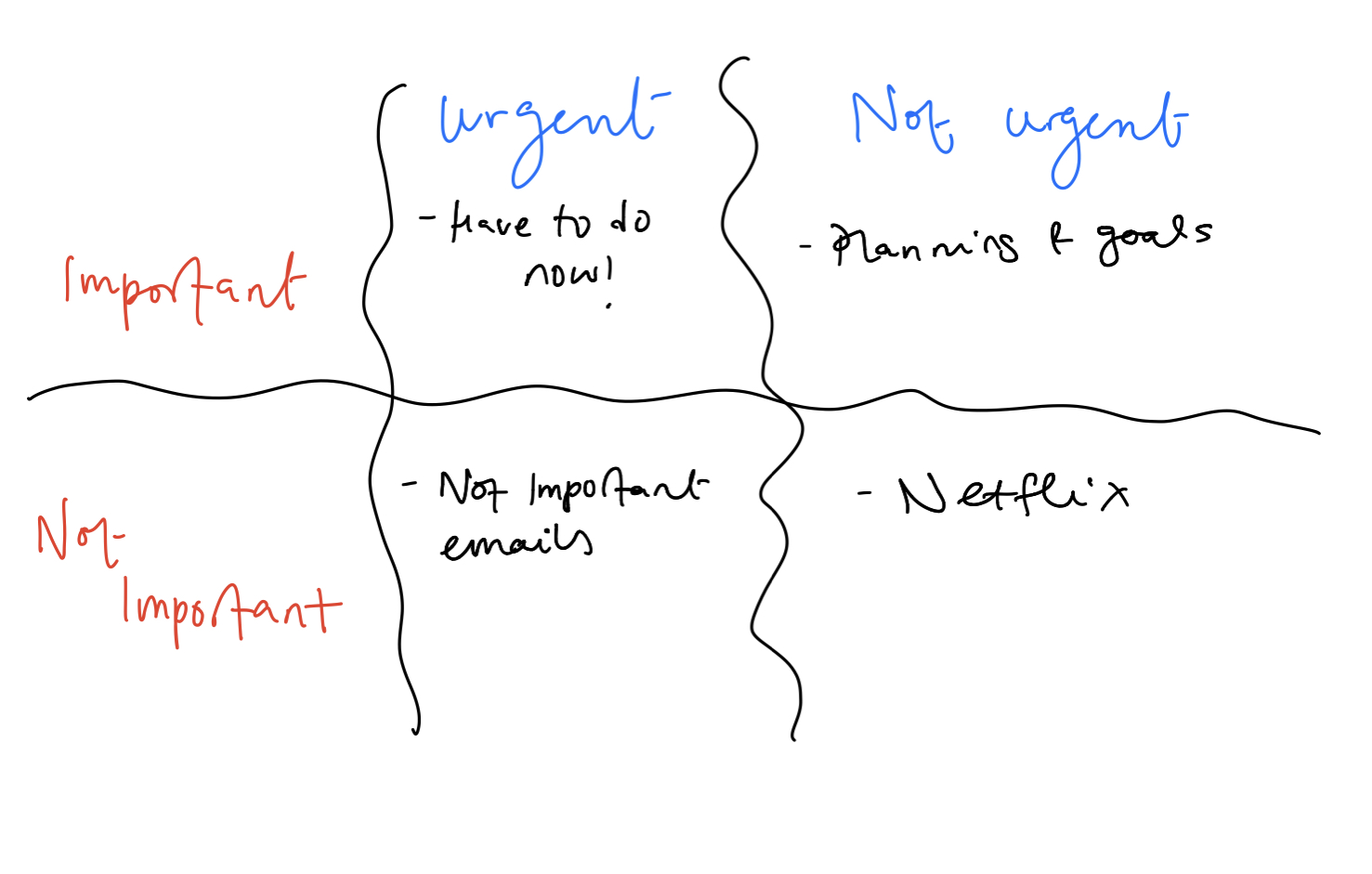
Favourite reads #1
Photo by Susan Q Yin on Unsplash
The books I choose for this instalment of this series has no fixed genre but some random books I came across. Follow through to know more!
The Seven Habits of Highly Effective People by Stephen Covey
This is a very famous productivity/lifestyle book that you might have come across, and we can all take a slice from what Covey presented us with and apply it to our lives. The main takeaway from this book is that you have to address your character if you want to have lasting changes in your life, not just your behaviour. "Character" here refers to the fundamental habits and your belief system that forms your view of the world, and according to the author, that all comes down to shifting paradigms. So a good example would be that you should not start a healthy lifestyle because you have an event coming up and you want to look good. Still, you should start it because you believe that a healthy lifestyle will make you happier, more energised and more present with your family and friends!
- The first habit: Be Proactive instead of being Reactive! This means that when you get any stimulus from your surroundings, such as getting lost in a new city, you have the capacity to proactively influence it, rather than be reactive and allow it to take over you. You have the option to be grumpy about the situation you are in, or proactively do something about the situation or even better, change your view of the situation by taking it as a learning experience.
- The second habit: Begin with an end/goal in mind. This goes for personal projects such as reading a few books or even more broadly for your life goals. For example, if you have a project you are working on, write down what you exactly expect to get out of this project and what steps you will take to get these results. Often, we ignore the planning steps and think that it is not that important, but it is helpful to have a rough plan of your projects, studies etc... Having said that, you should enjoy the process whilst always keeping the end in mind.
- The third habit: put first things first. So when you have a mission in mind for your project or even in your life, how do you make it a reality? The author mentions that most time-management techniques focus on increasing efficiency, not effectiveness. A straightforward technique is based on the table shown below, ensuring that you do the important tasks first. The second quadrant is the most important & if you work on it consistently, you will find far fewer issues with last-minute tasks.
- The fourth habit: think win-win. Most people have a win-lose mentality; if you lose, I win and vice versa. Most situations in life do not have to be in this format, and you will find that if you adopt a win-win mentality, you will develop many useful relationships (rather than being in a constant fight) and consequently develop in your field. A simple example is helping your friends with an application/exam, if they get the job or pass the exam, you won't lose, and in fact, you will gain invaluable experiences.
- The fifth habit: seek first to understand before being understood. For any conversation to be a fruitful one, you have to understand the point of view of the other person and vice versa. It might seem like a simple point, but many of us are keen to speak before the person in front of us tells us the full story. If you start listening to the person in front of you empathically, you will notice that people will be more willing to open up to you and consider your opinions and advice! Listen with the intent to understand rather than replying to the person!
- The sixth habit: synergies by treating others with openness and respect. Synergy is where many people contribute to a collective effort that is much larger than an individual effort. You can use synergy to your & others advantage by appreciating that we all have differences and can deal with different tasks and issues. When you synergise, say in your team, you are all trying to solve a shared challenge rather than fighting with one another. This is more important when you are working in a team and want to delegate tasks. So do take your time to understand your colleague's skill sets!
- The seventh habit: sharpen the saw if you want to keep sawing. You have to keep yourself well mentally and physically if you want to contribute and give to your society! If you don't stop and take care of yourself (the saw), you will become less sharp by the day and eventually burn out. Do take some time to relax in whatever way which suits you to re-energise. This can be by reading a book, exercising or lying in your bed, were all unique!
Figure 1: put first things first

Stephen Covey also released another book, "The 8th Habit" & "beyond the 7 habits", which talk more about motivation and setting life goals! Have a look if the summary above was to your liking.
Atomic Habits by James Clear
Again, this is a famous lifestyle book with some fantastic advice on adopting small habits that will breed tangible changes. The book's motto is that you will get massive changes and shifts in your life if you adopt these small changes consistently! We do not consider small changes as tangible because we cannot observe the immediate effects, which is all thanks to instant gratification. Changes require confidence, patience and consistency to produce the changes that you desire!
- What is a habit? A habit is a behaviour that you repeated so many times that you do it unconsciously. A habit is developed in response to a cue, for example, a dark room, and in turn, you crave light which makes you respond by switching on the light. Unfortunately, not all habits are healthy as we know; for example, stress might trigger us to drink loads of coffee and rely on junk food.
- Habits require cues and action plans. To make good habits stick, you have to make the cues as obvious as possible. If you want to drink more water, put water bottles in the centre of the living room and bedside table as a reminder. Another way to make cues more actionable is to use "implementation intentions", which means having clear plans & intentions. So instead of saying, "I want to drink more water," you can set a target of drinking two 500 ml bottles per day.
- Reward systems fuel good habits. The human brain releases dopamine and serotonin in response to pleasurable activities. You can see a couple of activities that seem mundane to ones that you look forward to; this will automatically make the mundane activity more motivating. For example, you can couple a run or a walk to listening to your favourite podcast or youtube channel.
- Reduce the friction to adopt the habit. The best way to adopt good habits is to reduce the friction to these activities. Want to hear more audiobooks? Keep the app you use for that on your phone's home page. The opposite is true for distracting apps; delete them, use the web app, or move them to the last page on your phone. Another way to make the habit stick is to use the "2-minute rule". Instead of saying I will read a book a week, start by saying I will read two pages every night.
- Instant gratification from habits. We are attached to immediate gratification, but most good habits have a delayed return. A good way is to make habits stick to link actions to long term gains and rewards.
- Use a sustainable framework for your habits. "Habit tracking" makes you see how well you are sticking to your plan and is very rewarding as well. It can be used as an accounting tool for yourself to measure your progress and keep you going. There are many forms of habit trackers, but you can choose whatever form suits you, whether it is a handwritten list or a digital one. In addition, you can use an accountability partner to see whether you are sticking to those habits and even go the extra mile by giving yourself penalties if you do not stick to your said plan.
The main takeaway from these two books is that start with small regular changes, enjoy the process and have a clear plan of what you want to achieve! For example, if you want to start a more healthy lifestyle, first of all, shift your paradigm from "I want to look better" to "I want to be more energised and lively" and then start by changing small elements in your diet rather than saying I will cut all sugar tomorrow (this is too drastic of a change). You can, for example, start by making fruit and veg more visible to you by placing them on the table rather than putting chips and other snacks. You will not see the change overnight, but surely, in the long run, you will see pleasing results.
Further reading & Apps
- The Blinkist app condenses books into summarised notes called blinks which you can listen to or read in approx 15 minutes. This app also contains audiobooks.
- Link to PDF versions of the books




